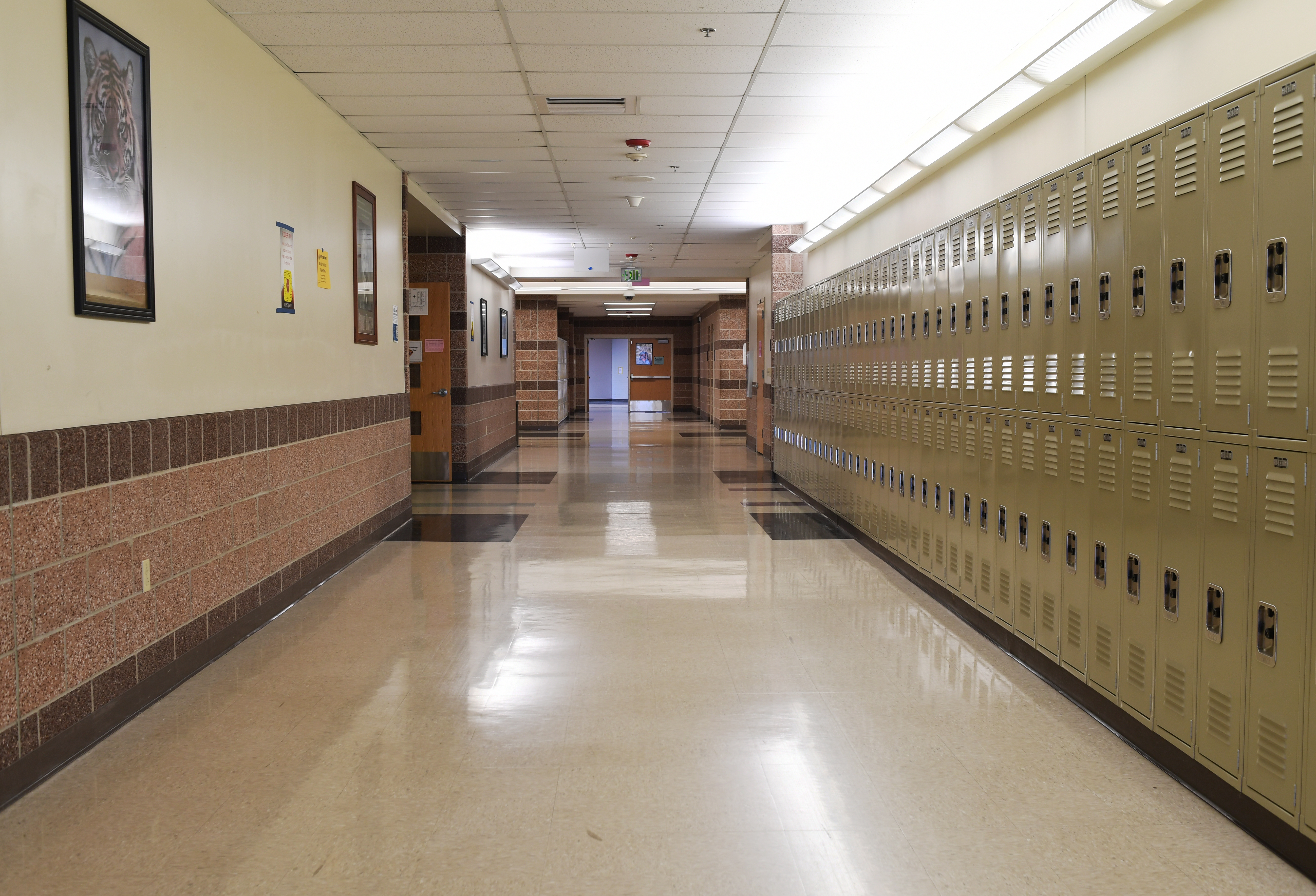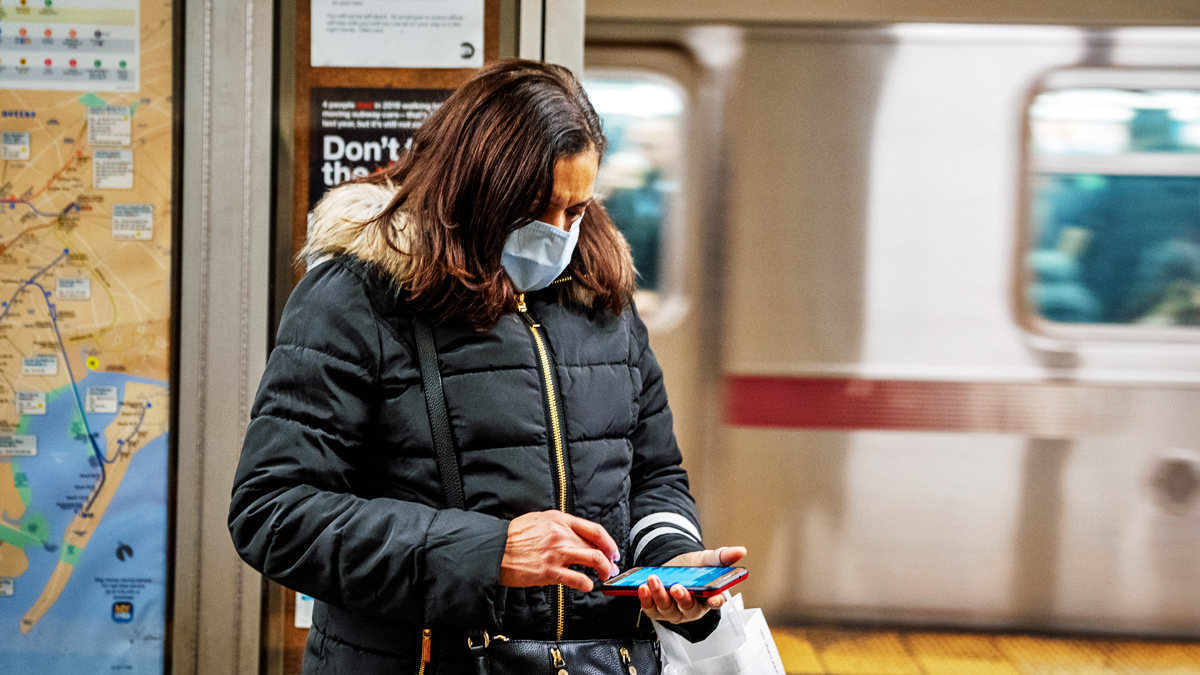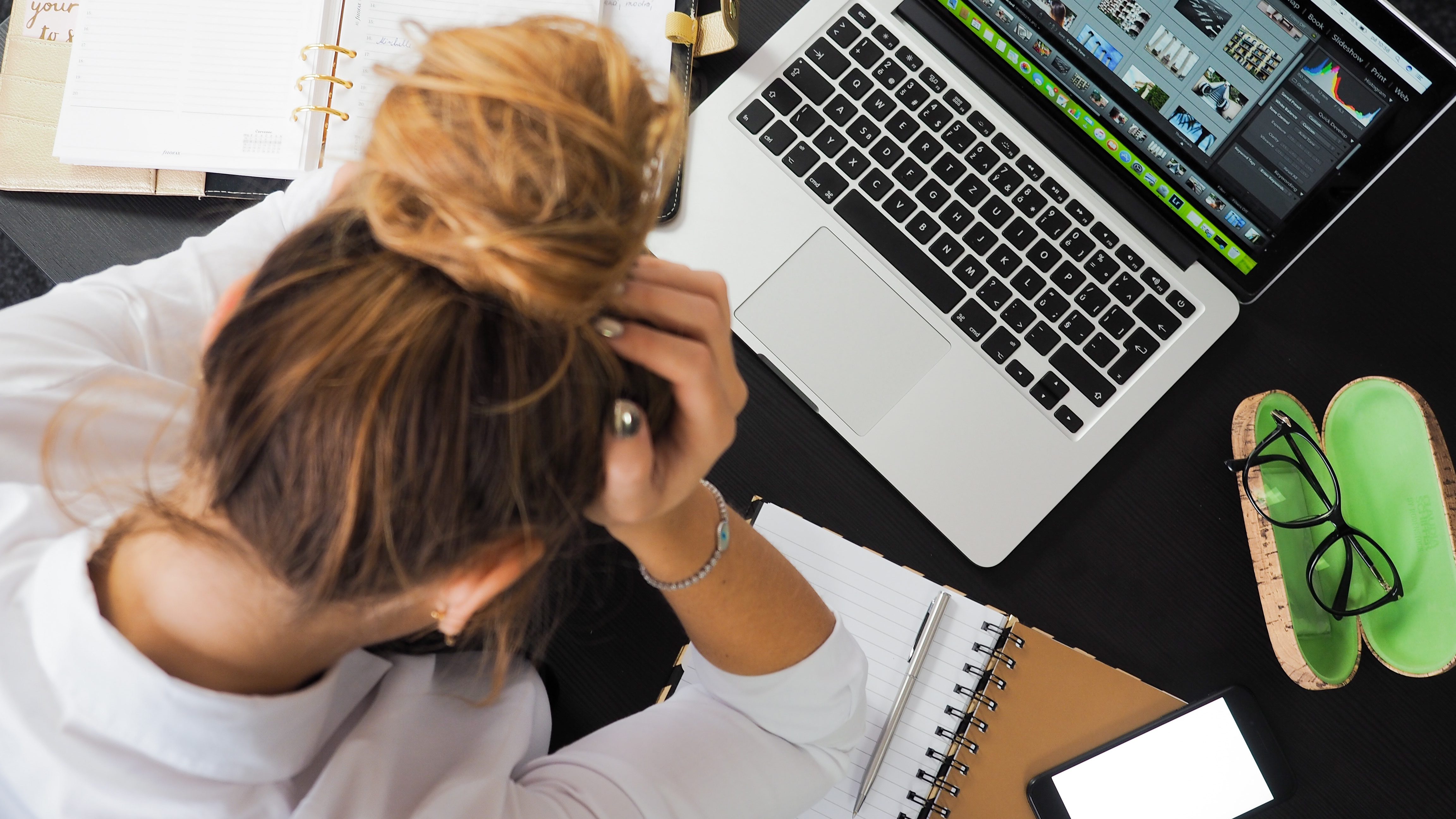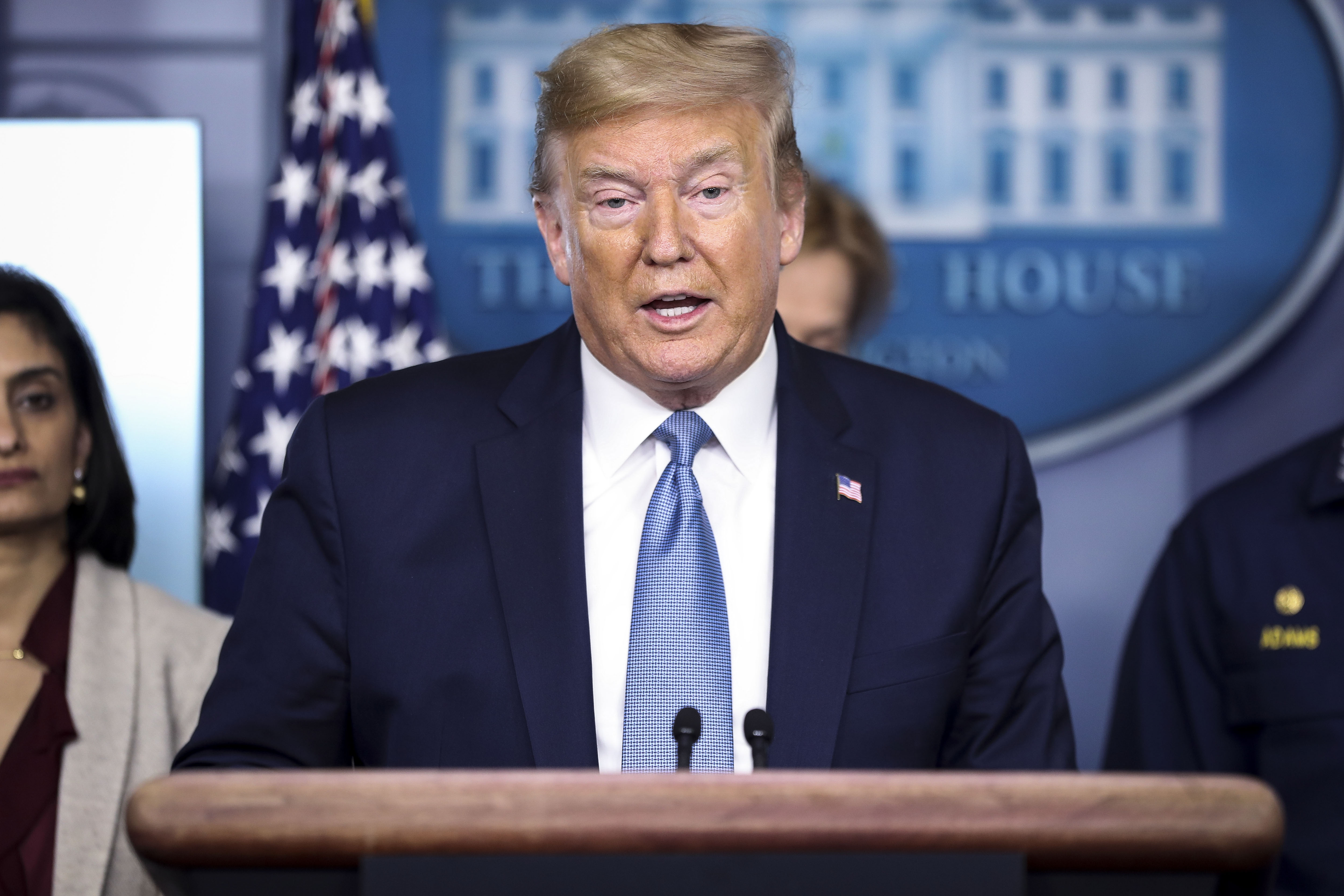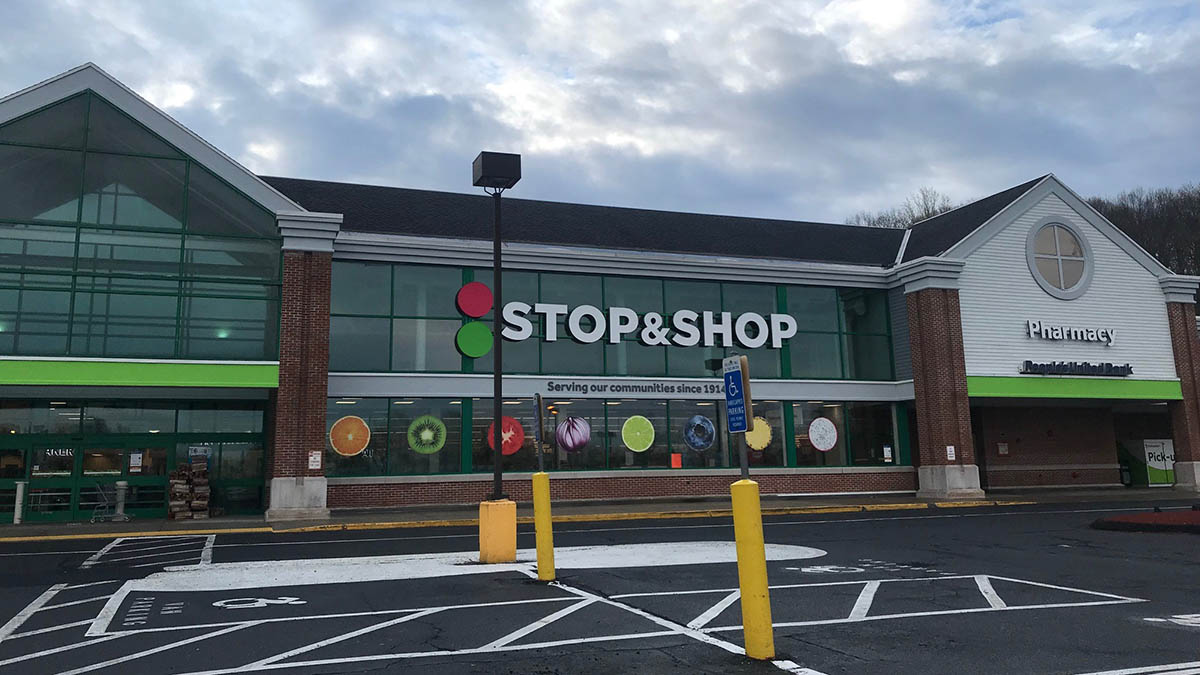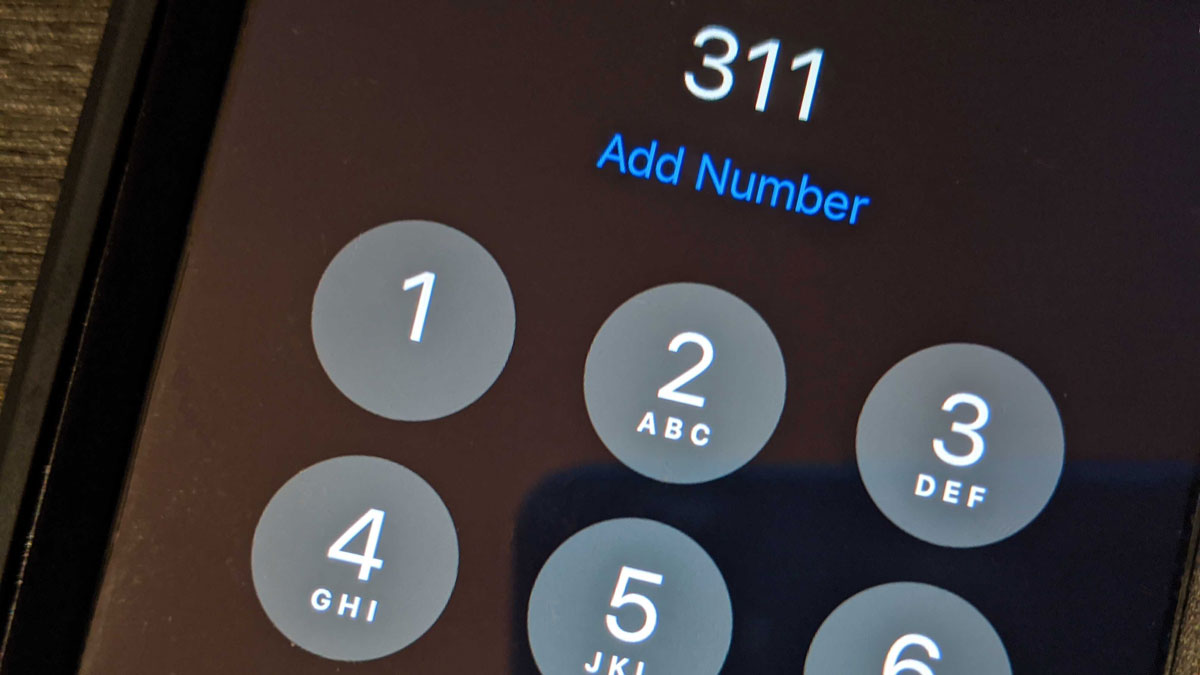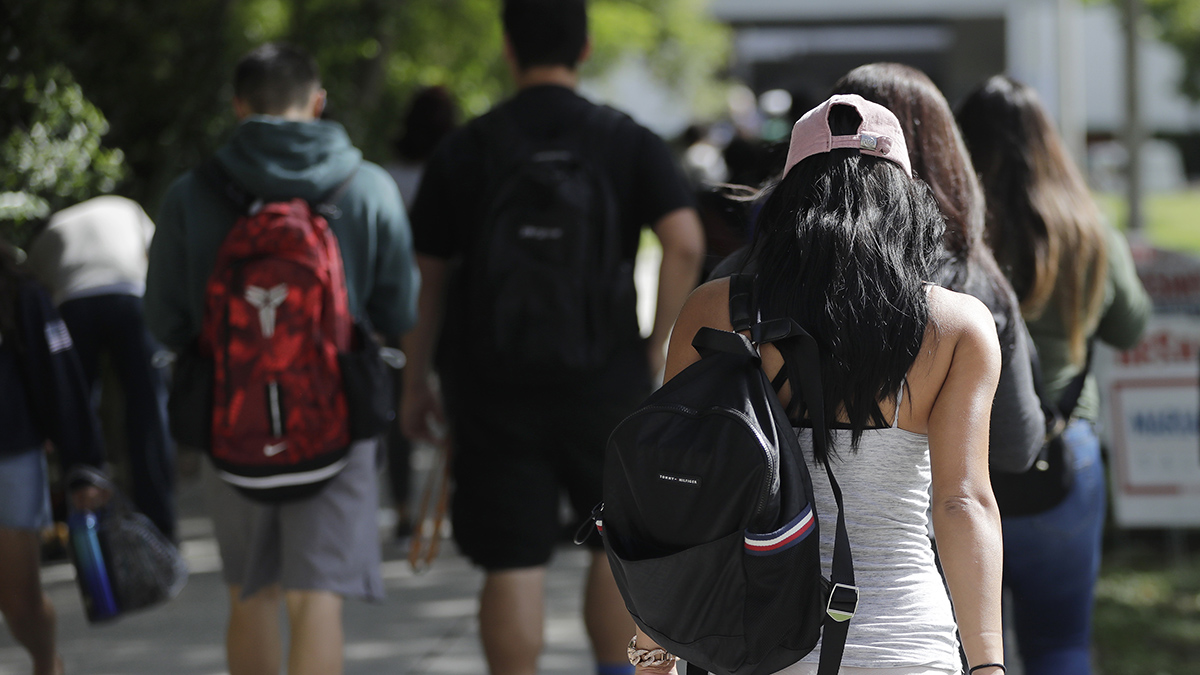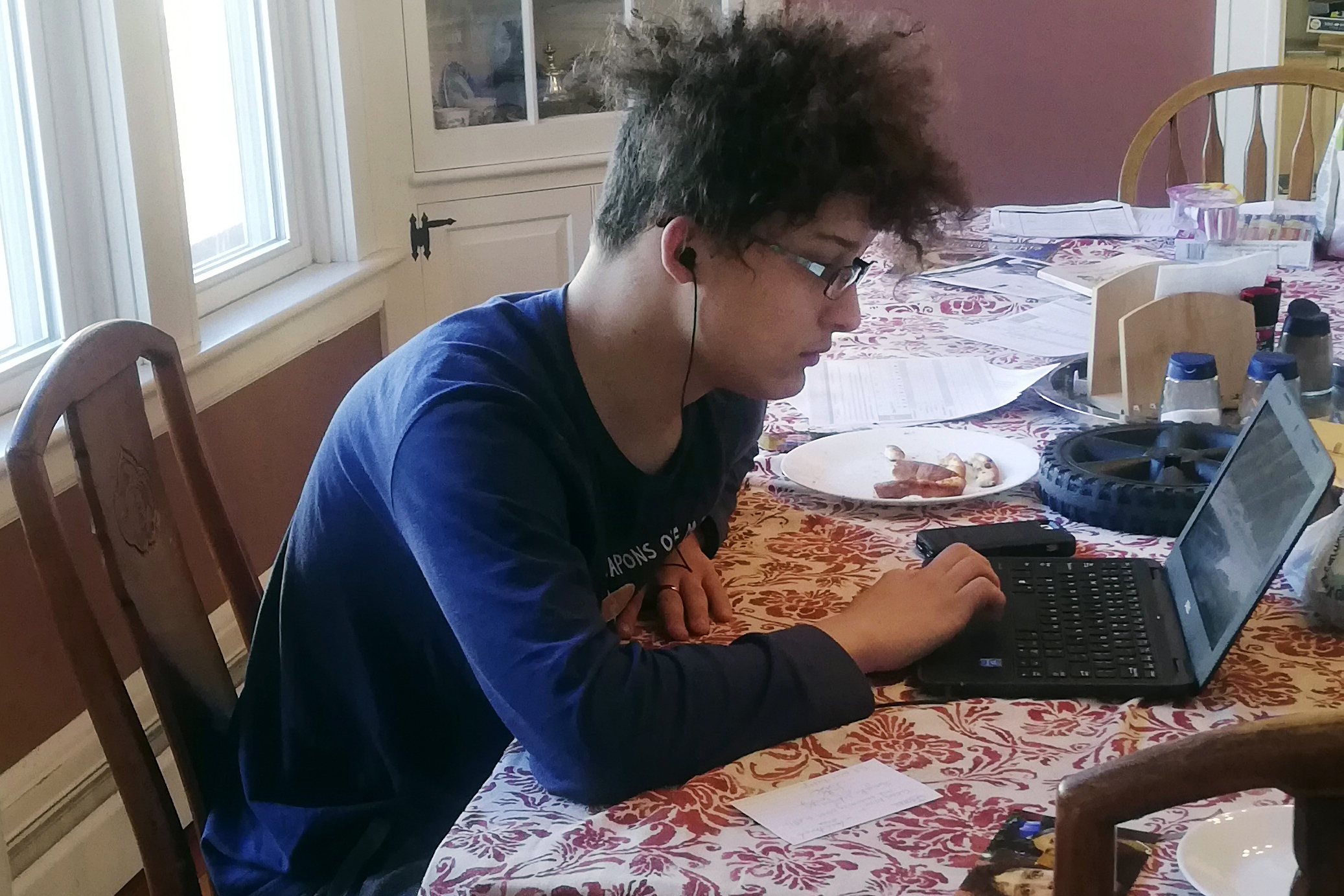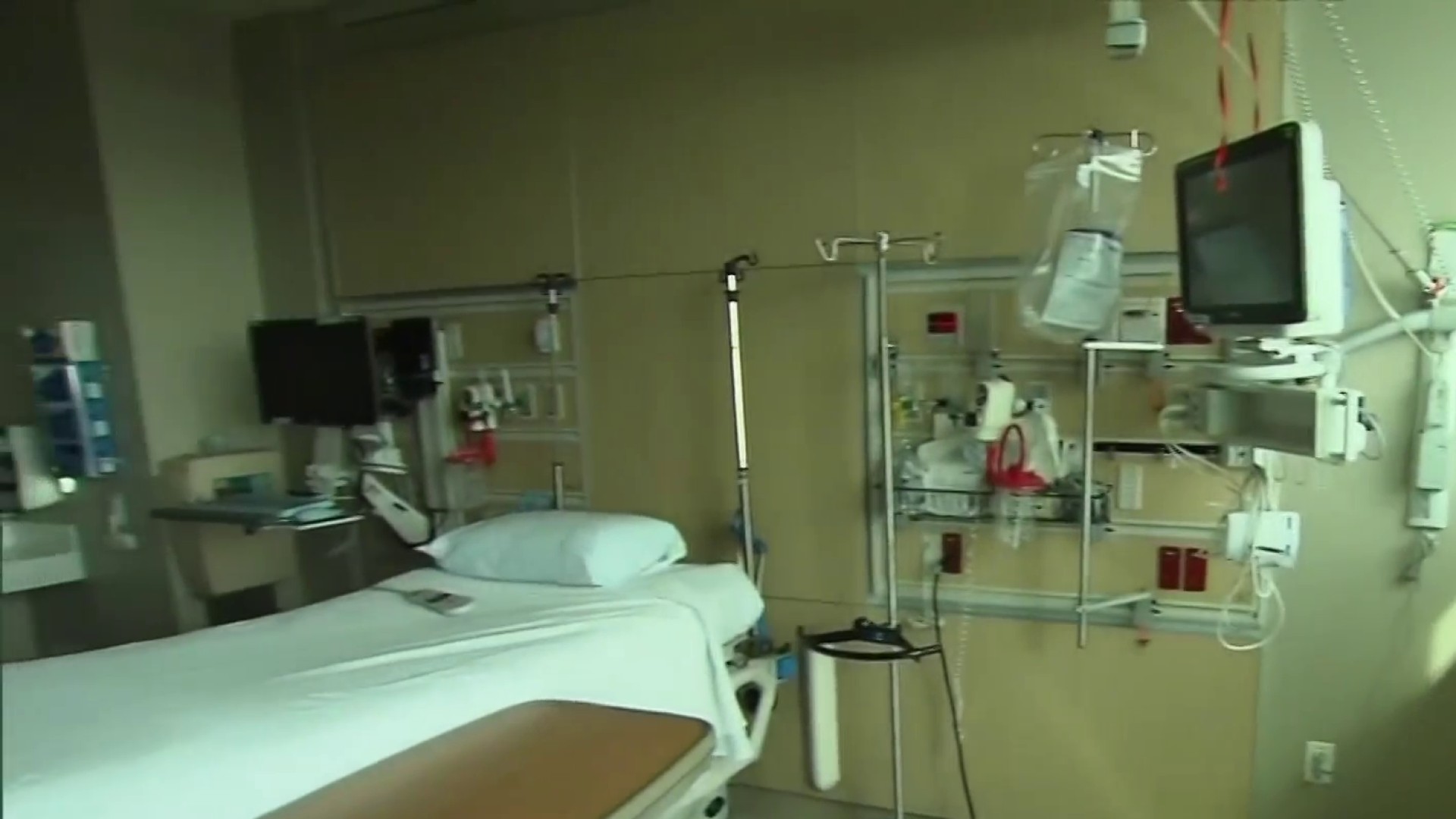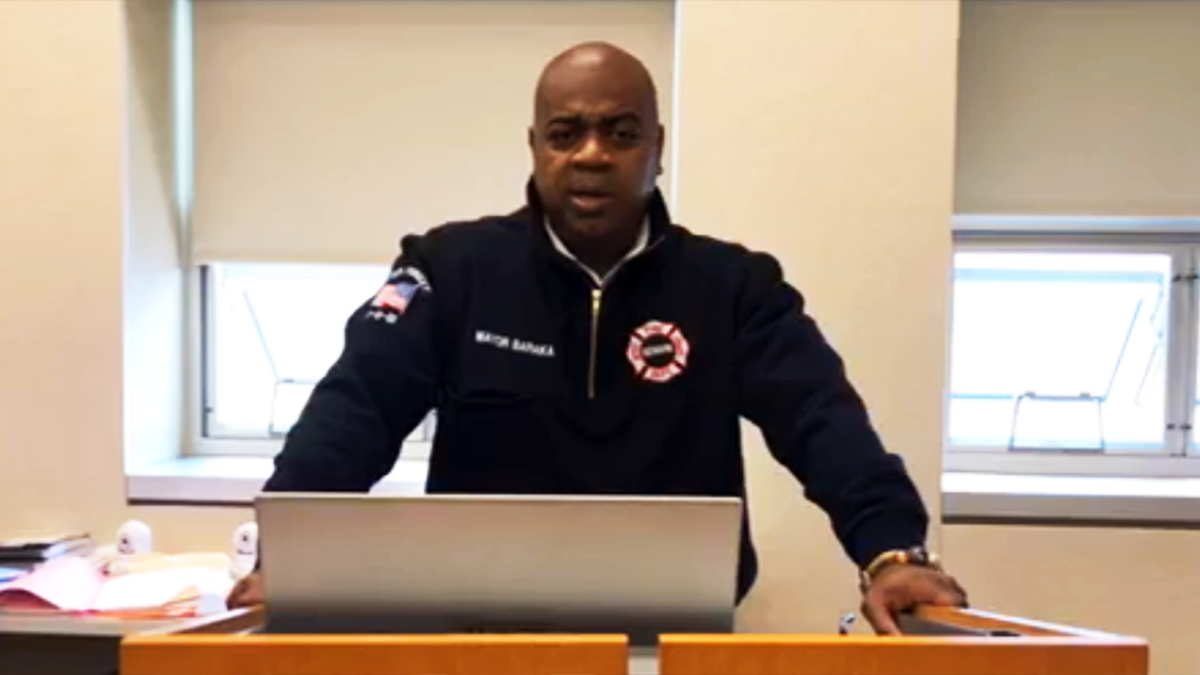What to Know
- U.S. novel coronavirus cases have surpassed 5,800; at least 100 people have died, including 18 in New York and New Jersey
- Tri-state COVID-19 cases have surpassed 1,700; Gov. Andrew Cuomo said it may take 45 days to reach the peak of infection and 110,000 hospital beds could be needed
- New York, New Jersey and Connecticut have all announced plans to shut down public and private schools; NYC closures are already in effect
Mayor Bill de Blasio told New Yorkers Tuesday to prepare for a potential citywide shelter-in-place order. While no state or city mandate has been issued at this time, the mayor said "we are deeply concerned about the direction and trajectory" of infection. A decision would likely come within 48 hours.
Earlier in the day, Gov. Andrew Cuomo said any such order would require state approval -- and his office was very quick to reiterate that statement after De Blasio spoke. "Any blanket quarantine or shelter in place policy would require State action and as the Governor has said, there is no consideration of that for any locality at this time," Cuomo's office in a statement.
Describing the city's plight as a "fast-growing crisis," de Blasio added more than 100 new cases to the number Cuomo had given for NYC just hours earlier. By the end of Tuesday, New York City coronavirus cases surpassed 900, according to the mayor. Ten NYC residents have died, along with five others across the state.
New Yorkers will get through this, de Blasio said — but added that the importance of public awareness and cooperation can't be understated. To that end, he said NYC would send a loud, vibrating alert to all phones in the city at 6 p.m. with virus info, and said people should expect more in the days to come.
He also once again cautioned retailers strongly against price gouging, saying 550 fines had been levied since just yesterday.
Tracking Coronavirus in Tri-State
Curve Not Flattening Fast Enough
Earlier Tuesday, Cuomo warned that New York state coronavirus infections may not peak for 45 days, projecting the state could need up to 110,000 hospital beds -- a number that simply dwarfs the current capacity.
Unprecedented restrictions have already been implemented. Cuomo said more aggressive measures are "likely" to come with the curve showing no signs of flattening out.
A total of 10,000 people have been tested in New York to date -- and de Blasio announced new partnerships Tuesday that he said will increase the city's capacity to 5,000 tests per day by the end of the week. Meanwhile, the number of positive cases in the tri-state area has surpassed 1,600.
New York state, mainly the city, accounts for the lion's share of those cases. New Jersey's total surged to 267 as of Tuesday while Connecticut has 68 cases, an increase of more than two dozen.
Of note, four players on the Brooklyn Nets have tested positive for COVID-19, the team said, one of whom is exhibiting symptoms. All four, whose names have not been released, are under the care of team doctors.
Coronavirus has not discriminated: First responders have been infected, church- and synagogue-goers, lawmakers. It has affected the entire spectrum, afflicting people anywhere from age 5 to 96. The community spread has been extensive.
Coronavirus Latest
Cuomo, along with the governors of New Jersey and Connecticut, took the unprecedented action Monday of announcing regional rules: banning crowds over 50; shuttering gyms, theaters and casinos; limiting restaurants and bars to take-out and food delivery only and other measures.
As for the restriction on bars and restaurants, the city said about 3,000 inspections took place Monday night, when the rule was implemented. Of those, 300 warnings and three violations were issued.
The governor didn't hint it at what new restrictions may be to come, saying those were being discussed. Meanwhile, de Blasio announced that alternate side parking would be suspended from March 18 through March 24; it's an experiment, he said, and may be extended as officials deem necessary.
NYC in Crisis, Faces Staggering Fallout
De Blasio offered a sobering outlook for the city's near future Tuesday -- one where schools, bars and restaurants may be closed for months and where the ultimate financial fallout may compare to the Great Depression.
The local economic impact even at this early stage is incalculable. Broadway is dark; concert and sporting venues are closed. At a state level, Cuomo said revenue is already as much as $7 billion below estimates.
The White House is trying to give the economy a shot in the arm, proposing an $850 billion emergency stimulus package Tuesday that includes a massive tax cut for wage-earners. But as eye-popping as that number is, some want even more, and are suggesting measures as aggressive as sending every American a check to put cash in pockets.
The stark new reality was underscored by an unprecedented sight in New York City Tuesday: A St. Patrick's Day with no parades, no bars and no gatherings of over 50 people. Anywhere.
The NYPD, FDNY and health department officials will work to keep it that way. Any establishment that police catch not complying will be given a summons for disorderly conduct. De Blasio said Tuesday afternoon that there was high compliance overall, though some summons did have to be handed out.
Tri-State Calls on Feds to Step Up
States have drastically scaled back business operation hours; New Jersey has suggested that residents mostly stay in their homes between the hours of 8 p.m. and 5 a.m. -- guidance that many appear to be following.
In a news briefing Tuesday, Murphy thanked the people who have heeded his suggestion and urged other New Jerseyans to do the same. The governor also announced that all shopping centers within indoor malls would be closed as of Tuesday night. Restaurants inside can operate in accordance with current tri-state regulations, which limit them to take-out and delivery services.
Coronavirus Help
Grocery stores will stay open, though Stop & Shop has adopted some changes: Effective Thursday, its stores will open 6 a.m. to 7:30 a.m. exclusively for customers older than 60, the group the CDC has identified as most vulnerable.
Officials hope the measures will be enough to essentially effect sort of a self-quarantine, drastically reducing the possibility of exposure to the virus by reducing density of population in any one place at one time.
Coronavirus News
Mass transit — the lifeblood of New York City and across the region -— has remained running normally, albeit with many fewer people. On Tuesday, MTA Chairman Pat Foye said that due to the plummet in ridership, a funding "calamity" looms. New York City subways are down 60 percent, with buses down nearly 50 percent. Commuter railroads have been hit even harder: LIRR is down 67 percent, while Metro-North is down a staggering 90 percent, a number almost hard to believe for one of the busiest rail systems in America that has packed train cars on a regular basis.
At this point, there is no tri-state plan to shut it down, but New Jersey Gov. Phil Murphy said they're working to "right-size" capacity to match reduced ridership.
There is no immediate plan to shut down roads either but the states' emergency declarations give them the power to do so if needed. New Jersey and New York, meanwhile, have mobilized the National Guard to assist with containment and food distribution measures as needed.
Wednesday at 5:30 p.m., Telemundo will have a live coronavirus special. Submit your questions (in English or Spanish) here
Hospitals Brace, Testing Goes Mobile
Amid the surge in NYC cases, de Blasio said the city would add five drive-thru testing facilities across the five boroughs, but specifics on where they would be located were not immediately made clear. Queens has been the most affected borough to date, followed by Manhattan and Brooklyn.
The five mobile areas would be for priority testing cases, the mayor stressed, and be done via reservations. Cuomo said that the same drive-thru testing centers would be coming to Long Island and Rockland County, and Bergen County officials said they were looking for volunteers to get a similar site up and running at Bergen Community College. Hudson Regional Hospital launched a by-appointment drive-thru center in Secaucus Tuesday. Such centers have already been implemented in Westchester County's New Rochelle, where a one-mile radius containment zone is in place.
More on Coronavirus
While escalating efforts to curb the spread, primarily to protect the most vulnerable populations, officials keep re-emphasizing certain facts about the novel coronavirus: 80 percent of people who get it self-resolve without needing further treatment and the overall general risk to the public is low.
Though the percentage of people who fall critically ill and need hospitalization is relatively low, the number of people who may get sick -- and how that number is increasing daily -- is concerning. Even if only 20 percent of the population needs to be hospitalized, there is legitimate and growing fear the hospitals won't be able to handle the burden.
Coronavirus Concerns
New York state, for example, only has 3,000 ICU beds -- and many of them are already filled, Cuomo said. He has called on the Army Corps of Engineers to start building new treatment facilities immediately. By the time the curve of infection has been flattened, Cuomo said New York could need 110,00 hospital beds. The state currently has about 53,000 of them.
Authorities are looking to convert existing facilities into medical facilities to provide more bed space. Private hospitals will be on notice that the state may direct them to cancel most elective surgeries, the governor said; de Blasio has told city hospitals, by executive order, to suspend those procedures.
The city is also working to retrofit other medical areas so they can be used as centers for care. To help staffing at these locations and other medical facilities, de Blasio said he may ask the federal government to send in health care workers from surrounding areas; he also asked for military personnel to step in for logistical help and coordination and said Tuesday he had a positive conversation to that end. The city has 11 tents ready to use as possible treatment places or for the Office of Emergency Management, with as many as 20 more on the way.
Where Do We Go From Here?
The World Health Organization has declared the novel coronavirus a pandemic, the first coronavirus to ever earn the dubious distinction. It's novel -- that means it's new and no one has immunity to it. Vaccines are in the works -- and a new clinical trial launched Monday.
The National Institutes of Health is funding the trial at a Kaiser Permanente research facility in Seattle. Testing began Tuesday with 45 young, healthy volunteers with different doses of shots co-developed by NIH and Moderna Inc.
Public health officials say it will take a year to 18 months to fully validate any potential vaccine.
NBC News estimates the total number of U.S. cases has surpassed 6,100 and more than 100 people have died. The vast majority of U.S. deaths have been in Washington state, where America's very first COVID-19 case was reported. Every state in the U.S., as well as Washington D.C., has reported at least one COVID-19 case.



